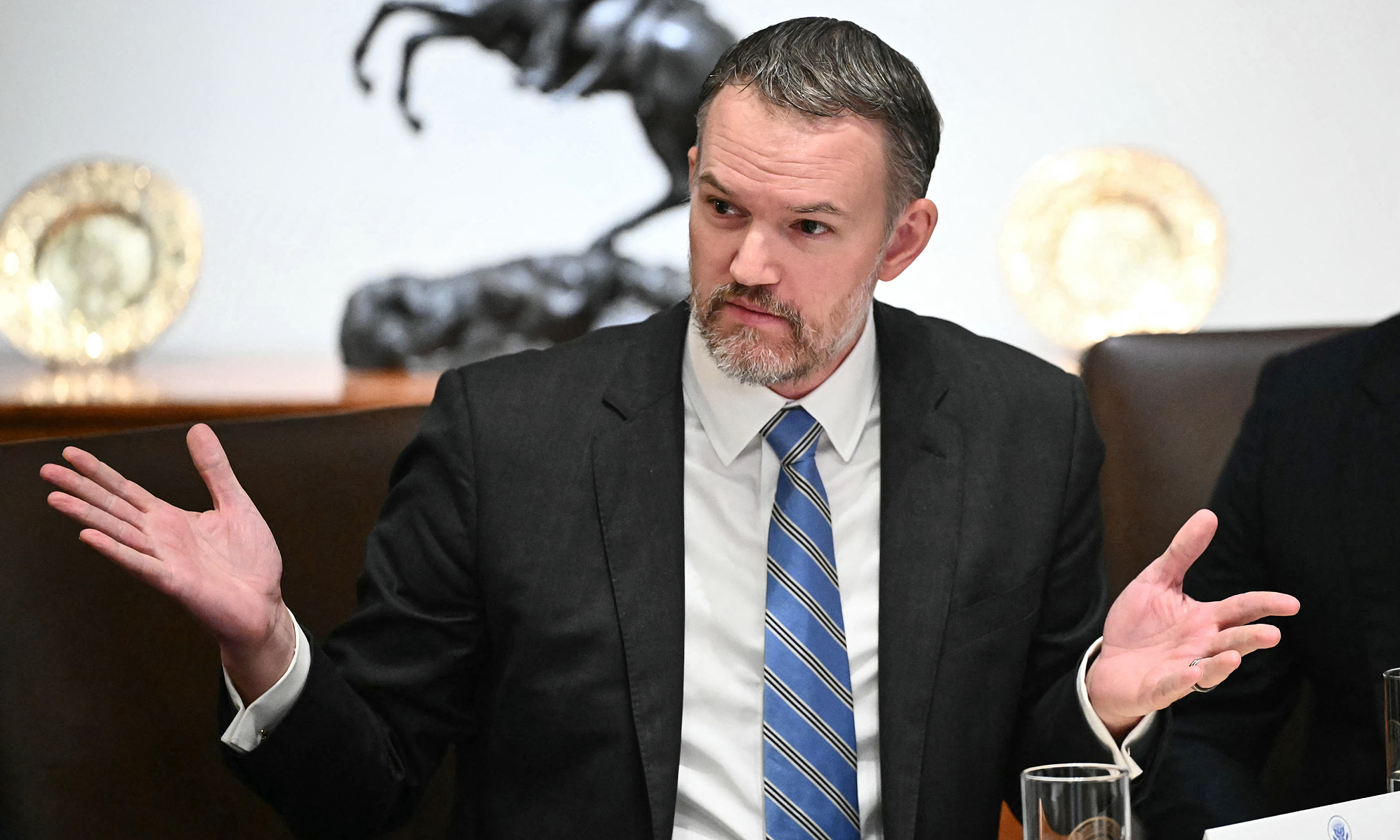US Trade Representative Jamieson Greer stated this in an interview on Fox News' "Fox & Friends" on 31/8. He said trade partners are continuing to work closely in negotiations.
"The agreements are still moving forward, regardless of what any court says in the interim," Greer said. He did not specify which countries the US is currently negotiating with but mentioned speaking with a trade minister.
 |
US Trade Representative Jamieson Greer at the White House Cabinet Room on 26/8. Photo: AFP |
US Trade Representative Jamieson Greer at the White House Cabinet Room on 26/8. Photo: AFP
On 29/8, the US Court of Appeals for the District of Columbia Circuit ruled that many of President Donald Trump's import tariffs are illegal. The court stated that when passing the International Emergency Economic Powers Act (IEEPA), Congress likely "did not intend to grant the president unbounded authority to impose tariffs." However, the court allowed the tariffs to remain in place until 14/10, giving the Trump administration the opportunity to appeal to the Supreme Court.
Congress passed the IEEPA in 1977 under President Jimmy Carter. The act grants the president the power to regulate commerce after declaring a national emergency to deal with "any unusual and extraordinary threat, which has its source in whole or substantial part outside the United States, to the national security, foreign policy, or economy of the United States." The act allows the president to "block transactions, freeze assets to address the threat," and requires reporting to Congress every six months. In the event of an attack on the US, the president can seize assets linked to the nation, organization, or individual supporting the attack.
Trump is the first president to use the IEEPA to impose tariffs, citing trade imbalances, declining manufacturing capacity, and the need to stem the flow of drugs across borders. In April, he declared a national emergency, arguing that the US has imported more than it has exported for decades.
This ruling affects the legality of tariffs Trump imposed on China, Canada, and Mexico in February, and retaliatory tariffs issued in April. However, tariffs on steel, aluminum, and automobiles, enacted under different legal grounds, are unaffected.
Trade experts believe the Trump administration anticipated this ruling and has alternative plans to continue imposing tariffs. "If other countries think that they're going to get tariff relief, they're going to be in for a rude awakening. There are still lots of backup options, even if the Supreme Court were to agree with the Court of Appeals," said Josh Lipsky, director of global business and economics at the Atlantic Council.
Lipsky noted that the Trump administration could invoke Section 338 of the 1930 Tariff Act, which allows the president to impose tariffs of up to 50% on imports from countries found to be discriminating against US commerce.
On 30/8, President Trump posted on social media: "Big year coming up for the USA, maybe the best ever, if the tariffs are eventually approved by the courts." Previously, he criticized the court's ruling as "a mistake" and warned that invalidating the tariffs would be "a disaster" for the country.
Speaking on Fox News' "Sunday Morning Futures With Maria Bartiromo," White House trade adviser Peter Navarro expressed confidence that the Supreme Court, with its conservative majority, would uphold the tariffs.
Republican Senator James Lankford stated that businesses he has spoken with want the issue resolved. "Every single time there's a hearing or a change, it unsettles every business. So, let's get these things resolved as quickly as possible," he said.
Phien An (Reuters)












